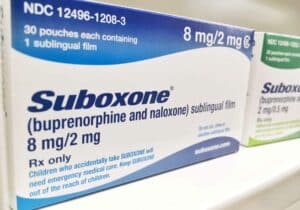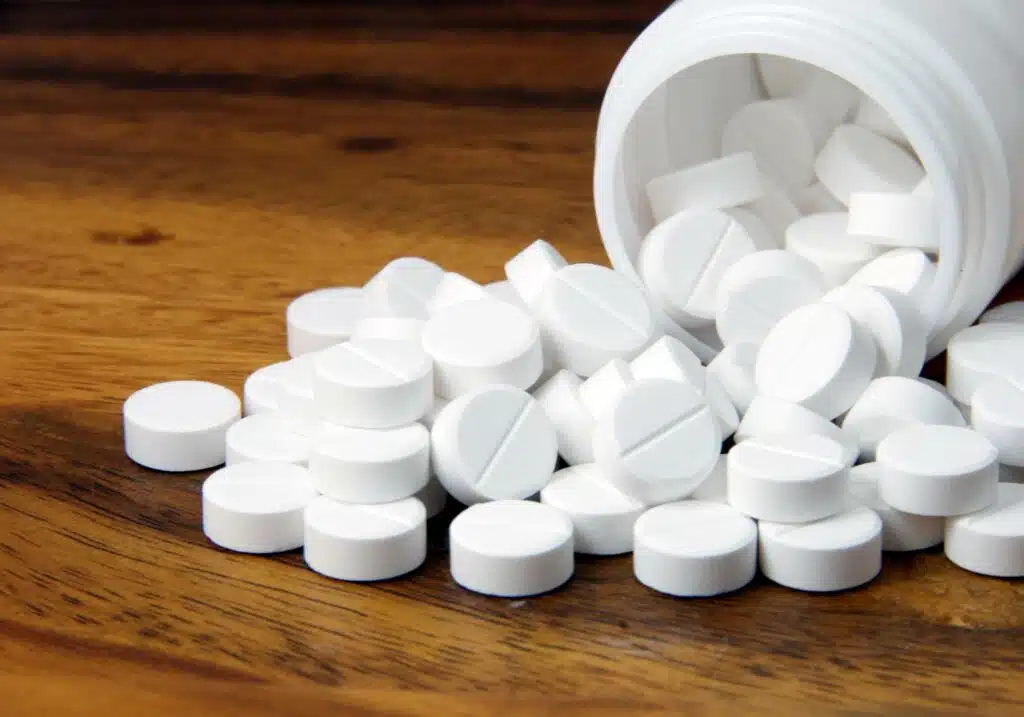Trazodone, marketed under brand names such as Desyrel and Oleptro, is a serotonin antagonist and reuptake inhibitor primarily designed to treat depression. However, due to its sedative properties, it is commonly prescribed as a sleep aid for those experiencing depression, and it is also used to manage anxiety, fibromyalgia, and other conditions.
As a prescription medication, Trazodone is effective for treating major depressive disorder and occasionally insomnia. While it is generally considered safe, there is a potential for misuse, which can lead to addiction or dependency. Misuse, especially when not adhering to prescribed guidelines, can result in withdrawal symptoms or an increased risk of overdose. Numerous treatment options are available for addressing Trazodone addiction and dependency.
What is Trazodone?
Trazodone is a widely used antidepressant and sedative prescribed to manage major depressive disorder and sleep-related disorders such as insomnia. Often utilized in addiction recovery settings, it helps individuals struggling with sleep disturbances.
The medication functions by enhancing the brain’s serotonin levels—commonly known as the “happiness chemical”—which plays a crucial role in regulating mood, anxiety, and overall emotional state. By balancing serotonin, Trazodone aids in alleviating symptoms of depression and anxiety, promoting better sleep, improving appetite, and boosting energy levels.
Trazodone is available in tablet form and is marketed under various brand names, including Desyrel and Oleptro, as well as other names globally.
Is Trazodone Addictive?
While trazodone is an antidepressant not typically associated with addiction like opioids, misuse can still lead to physical dependence and psychological addiction. Unlike substances that provoke intense euphoria, trazodone doesn’t produce these high feelings. Instead, its calming and relaxing effects may be misused for recreational purposes, potentially leading to addiction.
Individuals with a history of substance abuse or mood disorders are particularly at risk for developing a dependency on trazodone. Often, trazodone is combined with substances like alcohol, ecstasy, or meth to enhance its sedative effects, a practice that significantly heightens the risk of overdose and severe side effects. This underscores the importance of using trazodone responsibly and under medical supervision to avoid the pitfalls of addiction.
Signs of Trazodone Addiction
If someone is addicted to trazodone, early signs might include physical side effects like dizziness, nausea, blurred vision, and a hungover feeling. Continued misuse can escalate to physical dependence and addiction.
Here are some signs of trazodone addiction to watch for:
- Ignoring personal or professional responsibilities due to trazodone use.
- Doctor shopping to obtain multiple trazodone prescriptions.
- Securing additional trazodone, even when it’s not medically necessary.
- Falsifying symptoms to acquire trazodone.
- Acquiring trazodone by purchasing or stealing it from others.
- Buying trazodone from illicit sources.
- Increasing the dosage to achieve the same sedative effects.
- Experiencing withdrawal symptoms when not taking trazodone.
These indicators suggest a serious problem that might require professional intervention and treatment to overcome.
Why Do People Abuse Trazodone?
While trazodone does not produce a high akin to opioids or stimulants, its sedative effects can be appealing, leading to misuse. Though trazodone typically does not induce euphoria, it can create a relaxing, calming effect, which some individuals find desirable. This can lead to abuse both by individuals to whom it has been prescribed and by those who use it recreationally.
Trazodone is not commonly sold illicitly under street names like “sleepeasy,” but it is often misused by people who are prescribed the medication.
Methods of trazodone abuse include:
- Crushing and snorting the tablets.
- Mixing crushed trazodone with marijuana and smoking it.
- Combining crushed trazodone with alcohol or consuming it alongside alcohol.
- Taking trazodone with other depressants, such as benzodiazepines or opioids.
The risk of antidepressant abuse increases when trazodone is combined with other substances, especially depressants. Misuse of trazodone can lead to increased tolerance, necessitating higher doses to achieve the same sedative effects or to alleviate symptoms of depression.
The Risks of Mixing Trazodone with Alcohol
Mixing trazodone with alcohol can be extremely hazardous. Alcohol enhances the sedative effects of trazodone, such as increased drowsiness, dizziness, and significant difficulties with concentration. It also amplifies the drug’s impact on cognitive functions, including impaired thinking and judgment.
Patients prescribed trazodone are strongly advised to abstain from alcohol to avoid the heightened risk of severe side effects and interactions that can result from mixing these two substances.
Side Effects And Risks Of Trazodone
Trazodone, like any medication, can cause side effects, which are typically mild but can occasionally be severe and require medical intervention.
Common side effects of trazodone include:
- Constipation
- Diarrhea
- Dry eyes and mouth
- Fatigue
- Muscle pains
- Memory issues
- Nausea
- Ringing in the ears
- Sleep disturbances
- Blurred vision
- Nervousness
- Numbness
- Confusion
More serious side effects, though less common, may include:
- Chest pain
- Difficulty breathing
- Erectile dysfunction
- Fainting
- Headaches
- Lightheadedness
- Panic attacks
- Rashes
- Seizures
- Excessive sweating
These effects can range from mild discomfort to conditions that necessitate prompt medical attention. If you experience any severe reactions while taking trazodone, it is crucial to seek medical care immediately.
Trazodone Withdrawal Symptoms
Withdrawal symptoms from trazodone don’t necessarily signify addiction; rather, they can indicate physical dependence. If someone discontinues or reduces their dose of trazodone, they may experience a range of symptoms as their body adjusts to functioning without the medication.
Trazodone withdrawal symptoms include:
- Nausea and stomach aches
- Dizziness and vertigo
- Insomnia and fatigue
- Suicidal thoughts
- Difficulty concentrating
- Headaches
- Excessive sweating
- Muscle pains and chills
- Irritability
- Sensations that feel like electrical jolts in the brain
- Anxiety and depression
- Tightness in the chest
These symptoms highlight the body’s reaction to the absence of trazodone and underscore the importance of medical guidance when reducing or discontinuing its use.
Trazodone Overdose Symptoms
Trazodone overdose is a serious risk, particularly when excessive amounts of the drug are consumed, potentially leading to serotonin syndrome. This condition results from high levels of serotonin and can manifest a range of symptoms, from mild to severe:
- Agitation or restlessness
- Muscle twitching
- Confusion
- Rapid heart rate and high blood pressure
- Diarrhea
- Shivering and goosebumps
Immediate medical attention is crucial under the following severe symptoms:
- High fever
- Seizures
- Irregular heartbeat
- Unconsciousness
Combining trazodone with alcohol, barbiturates, or sedatives like Valium greatly increases the risk of a fatal overdose. Therefore, alcohol consumption should be avoided during trazodone treatment.
Recreational Use of Trazodone
The recreational use of trazodone is increasing, despite the fact that it does not produce a high like other substances. Trazodone is sought after for its calming and relaxing effects, making it appealing to some users looking for tranquility. Known on the streets as “sleepeasy,” trazodone is frequently combined with other substances such as alcohol, ecstasy, or meth to intensify its sedative effects, significantly raising the risk of overdose and adverse reactions.
Methods of recreational abuse of trazodone include:
- Crushing the tablets to snort the resulting powder.
- Mixing crushed trazodone with marijuana and smoking the blend.
- Dissolving crushed trazodone in alcohol and consuming the mixture.
Such practices enhance the risk of dangerous side effects and complications from trazodone abuse.
Treatment for Trazodone Addiction
Addressing trazodone addiction often involves unraveling a pattern of polydrug abuse, making it essential to understand the broader context of an individual’s substance use. This begins with a thorough assessment, leading to a personalized treatment plan that might include:
- Medical Detox: For those physically dependent on trazodone, detoxification might be necessary. This process can be managed in an inpatient or outpatient setting, depending on the severity and specifics of the case. Typically, recovery from antidepressant discontinuation requires medically supervised tapering to mitigate withdrawal symptoms.
- Treatment for Co-occurring Disorders: Essential for addressing any accompanying mental health or substance use disorders that may be present alongside trazodone abuse.
- Inpatient or Outpatient Treatment Options: The choice between inpatient and outpatient treatment will depend on the individual’s abuse pattern, lifestyle, and personal preferences, ensuring the approach is tailored to their specific needs.
- Comprehensive Therapy: Focused on uncovering the root causes of substance abuse, developing coping strategies, and implementing relapse prevention measures. Therapy may involve individual sessions, group therapy, or a combination of both, depending on what will most benefit the individual.
- Psychoeducation: Educating individuals about the nature of addiction and strategies for maintaining sobriety is crucial for long-term recovery.
- 12-Step Meetings: These can be integrated into the long-term aftercare strategy, providing ongoing support and community engagement to help maintain recovery.
Each element of this treatment framework is designed to provide robust support and facilitate a sustained recovery, addressing both the physical and psychological facets of addiction.
Trazodone Addiction Treatment in Chattanooga, TN
At Iris Wellness Group, we provide a spectrum of outpatient treatment options for those struggling with trazodone addiction, including detox, Intensive Outpatient Programs (IOP), Partial Hospitalization Programs (PHP), and Adolescent IOP. Our approach is holistic, integrating cognitive behavioral therapy, group counseling sessions, support groups, and relapse prevention education to help clients break free from psychological dependence on trazodone.
If you or a loved one is battling with trazodone addiction, support is available. Contact Iris Wellness Group at 423-441-4650 or fill out our online contact form to discover our trazodone addiction treatment in Chattanooga, TN designed to guide you through every step of recovery.










